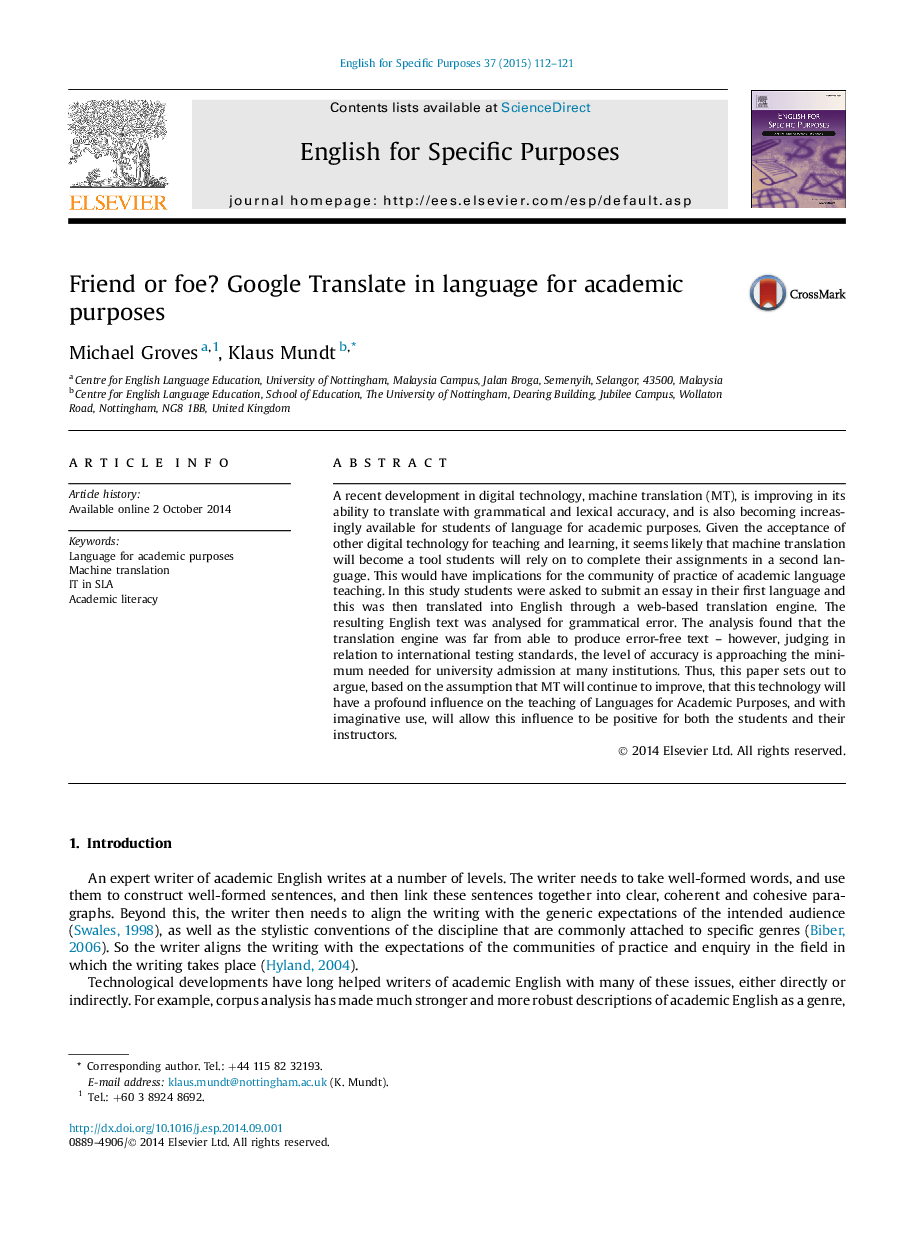| کد مقاله | کد نشریه | سال انتشار | مقاله انگلیسی | نسخه تمام متن |
|---|---|---|---|---|
| 355450 | 619278 | 2015 | 10 صفحه PDF | دانلود رایگان |
• We take students' texts and translate them through the Google Translate Engine.
• We find that, while flawed, the translations are comprehensible, and in some places impressive.
• We argue that the Language Teaching profession needs to work with, not against, such technologies.
A recent development in digital technology, machine translation (MT), is improving in its ability to translate with grammatical and lexical accuracy, and is also becoming increasingly available for students of language for academic purposes. Given the acceptance of other digital technology for teaching and learning, it seems likely that machine translation will become a tool students will rely on to complete their assignments in a second language. This would have implications for the community of practice of academic language teaching. In this study students were asked to submit an essay in their first language and this was then translated into English through a web-based translation engine. The resulting English text was analysed for grammatical error. The analysis found that the translation engine was far from able to produce error-free text – however, judging in relation to international testing standards, the level of accuracy is approaching the minimum needed for university admission at many institutions. Thus, this paper sets out to argue, based on the assumption that MT will continue to improve, that this technology will have a profound influence on the teaching of Languages for Academic Purposes, and with imaginative use, will allow this influence to be positive for both the students and their instructors.
Journal: English for Specific Purposes - Volume 37, January 2015, Pages 112–121
